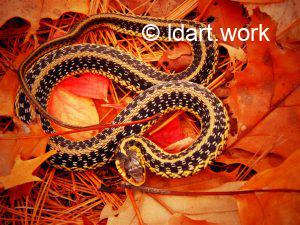
Fake news or real news ?
A dialogue between Peter the hawk, Davina the goose and Niccolò the snake. Peter believes that animals and plants are equal to humans and that mutual aid is necessary. Davina is a great traveler who knows that knowledge and ethics are acquired with experience. Niccolò is secretive and manipulative but justifies himself by saying that it is for the common good.
Peter: how are you, Niccolò? Your presence here must have something to do with the news that caught Davina’s attention today, right?
Niccolò: ha, I don’t know, we’ll see; in the meantime I’m perfectly fine and it’s an honor to be with you on the set.
Davina: Peter, you’re right, I hear the pope claiming the first of the fake news was what Niccolò had told Eve so I thought we should ask the suspected culprit for his opinion.
Peter: very good idea, but why did he say that, the pope?
Davina: he denounced the proliferation of lies in social media, “the techniques of Niccolò” he said, which make people act against their interests by manipulating their beliefs.
Peter: well Niccolò, you are indeed in the hot seat. What do you have to tell us about this?
Niccolò: that news is news. Whether it is true or false is then only a matter of convention because what is true for me is not necessarily true for others.
Davina: oh the sophisticated sophist! Your lies meant the end of Heaven for humans and a lot of changes for the rest of the creation, don’t you recognize that?
Peter: to take another example, a creator of fake paintings, even though he or she does create paintings, remains a crook because he or she abuses people’s gullibility.
Niccolò: the information that people remember is what they want to believe and in this sense, everyone is gullible because no one believes what is false. I only told Eve what she wanted to hear and so it was at least true for her, how should I feel guilty for having comforted her in her thoughts?
Davina: you knew very well that you manipulated her feelings!
Peter: and you knew what would happen to her!
Niccolò: I told her she would gain knowledge and that’s what happened. See how much humans know now thanks to me.
Davina: you didn’t tell her at what cost she would have this knowledge and at what price for those who had not asked for anything!
Peter: to encourage people to do what they want to do by hiding from them the harmful consequences of their actions are to use them for selfish ends.
Niccolò: my friends, you confuse the news and their sometimes negative consequences. What I told Eve was true, what she decided to do maybe was a mistake but I am not responsible for it.
Davina: you knew what you were doing and you knew that you shouldn’t have done it.
Peter: you wanted to get rid of her, that’s what you told the deers.
Niccolò: the fact remains that she herself made the decision to listen to me and I didn’t impose it on her…
Peter: so the pope wrongly accuses you and should blame Eve instead?
Davina: don’t tell us that you don’t understand what he meant.
Niccolò: both of you, you think that the truth is universal when it is only a provisional consensus. History proves it a thousand times over, the truth of one day is the false of tomorrow. The pope believes what he says, but that doesn’t make his word true. It all depends on who listens to him. That’s also why I didn’t think I had to respect the word of God, especially since he leaves us free to make our choices, doesn’t he?
Davina: your reasoning is very specious.
Peter: to hear you, nothing would ever be true or false but would always depend on the listener, and it would be possible to say everything without there being any ethical repercussions.
Niccolò: what you, you call a fake painting is however a real painting for the one who buys it and that remains true as long as no one tells him or her otherwise. Have you ever wonder the motives of those who break her or his belief? There are no worse egotists than those who believe they are doing good.
Davina: this is where you are wrong, Niccolò. True and false are based on observable or non-observable facts. The painting is fake not because it is not a painting but because the one who made it did not sign it with his or her name. So she or he knowingly deceives people.
Peter: it may be that in your case, the pope did not take a good example but his call remains valid because we cannot knowingly confuse what is true and what is false; this has consequences for the resulting actions and the hierarchy of values. A society needs consensus to function and the truth brings it. That’s why you can’t say that everything is the same.
Niccolò: I only presented Eve with a possibility of action, a piece of news outside the general consensus if you want, but a piece of news all the same. The value that is then given to it is indeed based on a consensus, but if we only respected the established consensus, nothing would ever change. So it’s a bit easy to say I’m guilty when I was innovative. I have been wrongly accused, that is the problem.
Davina: poor Niccolò!
Peter: you would almost make us cry but it is still your art of speech that is at work here.
Niccolò: dear Davina and dear Peter, the pope is right to recall that at all times, there have been what he should have called contradictory truths. What he did not say is that they allow us to define who we are depending on whether we follow them or not and that is why they exist: they offer choices that define personalities and procedures to follow.
Davina: so nothing new?
Peter: and you could be a hero?
Niccolò: thank you for saying it for me and thank you for giving me the opportunity to defend myself.
Analysis
How are fake news defined?
For Peter, a fake news is like a fake painting, masquerading what it is not in order to serve selfish interests. It rejects the common consensus about truth and therefore threatens the smooth functioning of society.
For Davina, it is a news that is known to manipulate facts to make listeners act in a certain way. It assumes that because everything is possible, everything is ethically worth while when in reality, one needs hierarchies of values to be able to choose correctly.
For Niccolò, there is only news that corresponds to different expectations. False and true are above all value judgments and they allow people to assert their identity. If we stick to established consensus, there would never be any possible changes, and history shows that the truth of one day can be the falsehood of another.
Possible Discussions
Is truth a matter of preference ?
How do you decide that a piece of news is true or false?
Finally
Want to think a little more? See, for example, Beyond fake news where McBrayer analyzes how fake news works and how to correct misinformation.
Want to contribute to these dialogues? Write your comments and questions below.
Want to know more about the tastes of Peter, Davina and Niccolò? Their favorite books are in the domain library.

